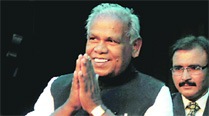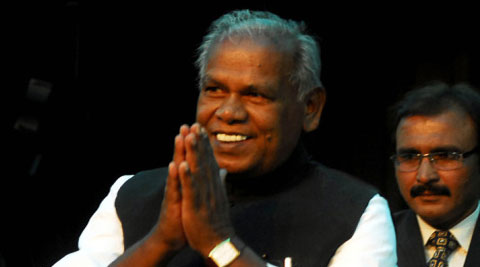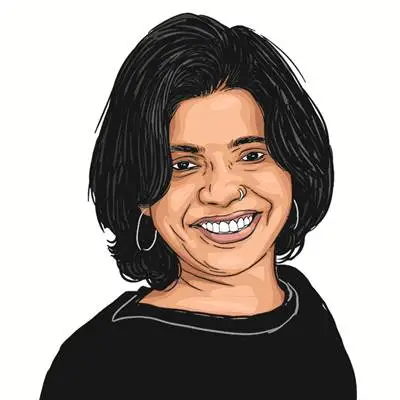Opinion View from the right: Time for change
The editorial in the Organiser calls for changing mindsets and attitudes to get rid of pessimism and prejudice.

 The editorial criticises the UN for not allowing Indian groups to “welcome and show support” to Prime Minister Narendra Modi. ( Source: Express photo )
The editorial criticises the UN for not allowing Indian groups to “welcome and show support” to Prime Minister Narendra Modi. ( Source: Express photo )
TIME FOR CHANGE
The editorial in the Organiser calls for changing mindsets and attitudes to get rid of pessimism and prejudice to put society on the road to “positive collectivism and constructive change”. Taking exception to the reported “washing” of the idol in a temple after Bihar Chief Minister Jitan Ram Manjhi’s visit because he is a Mahadalit, the editorial says it was a “shocking example” of the “rigid mindset.” It argues: “No caste-based identity politics will be able to change this mindset.
Unless there is a societal resolve to curb this menace once and for all, mere legal and constitutional menace will not be able to bring the real change…” The editorial also cites RSS chief Mohan Bhagwat’s speech on Vijaya Dashami, when he said no government or administrative machinery has the power to remove the feeling of discrimination from people’s mind and that it will “end only with the efforts and initiative of society itself.”
Emphasising the need to change people’s mindset, the article says Vijaya Dashami does not signify the victory of good over evil in the external sense, but “points at getting rid of your internal evils for the real change to happen.”
The editorial also criticises the UN for not allowing Indian groups to “welcome and show support” to Prime Minister Narendra Modi. Highlighting that permission was denied on the grounds that the UN can allot space only for protest, the editorial argues that such attitude reflects the “post-World War II mindset” in which international organisations were created.
LOVE TRAPS
Looking at a few instances of reel- and real-life stories on “love jihad”, an article in Panchjanya says the lives of those “trapped in love jihad” are miserable. According to girls who had become victims of this phenomenon, leading a respectable life in society would be almost impossible for them. The article cites the movies Kurbaan and Escape from Taliban, in which the Hindu heroines are “used” by their Muslim boyfriends in their jihaad, and warns that the directors wanted to send a message to the country. “Incidents of love jihad have been reported from different states across the country.”
In the real-life story, it cites the case of shooter Tara Sahdev, who was allegedly tortured and forced to convert by her Muslim husband who had hidden his identity in order to marry her. Citing other incidents of love jihad reported from Delhi’s Najafgarh and Gokulpuri areas, the article asks Hindu girls to not only beware of such traps but also try and reach legal assistance to girls who had fallen into such traps.
US MODI-FIED
The Organiser cover story, “The US MODIfied”, says that, for the Indian-American youth, Prime Minister Narendra Modi is “the great leader… India needed after Independence.” Comparing Modi with Swami Vivekananda, the article says: “There were similarities between the ways Swami Vivekananda called up on the youth [and] what Modi emphasised upon — India’s prime asset being the youth of the country.” It goes on to say that for the West it was “seeing is believing”, after they saw the prime minister in person: “there will not be any questions in their mind to believe his vision for India, his vision to partner with America.”
The article praises Modi’s UN speech too, saying that it “showed that he has solution[s] for the problems of the world… And this message is just not for America, but an indication that… the world has to be modified…”
Another article praises Modi for taking steps to revive the Indian bureaucracy, referring to the amendments to the 46-year-old All India Service (Conduct) Rules, 1968. “With focus on governance backed with transparency… merit-based Indian bureaucracy can not only inflict a massacre on corruption and inefficiency but also in the process regain its glory,” says the article.
Compiled by Liz Mathew





